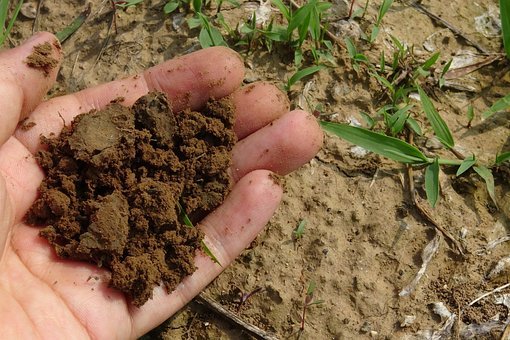Compost bins are a green solution to reducing household waste. This guide will give some clues of how to make compost that will benefit the garden and the environment.
Before the days of waste disposal units and regular garbage removal it was common practice to have a compost bin in the garden. Nowadays there has been a resurgence of interest in composting due to a heightened awareness of the need to recycle and reuse in order to protect the planet.

What is Needed to Make Compost
- Kitchen compost bucket. For the kitchen it is a good idea to have a small bench top container to put kitchen scraps into so that there is no need to keep going outside to the compost every time. A four liter container should be adequate for a family of four. It should have a good fitting lid so that it doesn't attract fruit flies and to avoid smell. There are a few bench top compost scrap containers on the market with charcol filters but this is not necessary.
- A Compost bin. There is a large range of compost bins available commercially or the handyman can make their own by placing four corner posts a meter square and nailing slats across three sides, leaving the fourth side open. Most people like to place the compost bin in a discreet part of the garden but it should get several hours of sun a day to speed up the decomposing time.Having two compost bins side by side means one can be used to place scraps in when the other one is ready to use on the garden.
- Garden lime and/or compost activator (optional) available at any garden center.
What to Put in Compost Bins
- Eggshells
- Coffee grounds
- Tea leaves and unbleached teabags
- lawn clippings
- Vegetable peelings
- Used potting mix
- Newspaper, torn or shredded
- Annual weeds and plants
- Leaves
- Straw and hay
- Manure
What Not to Put in Compost Bins
- Meat and bones (will attract rats and other vermin)
- Colored paper and magazines
- Detergents and chemicals
- Perennial weeds.
- Plants that may not compost and may take over such as ivy.
- Thick stems and fibrous plants which will take a long time to decompose.
How to Compost
- For the best compost alternate the layers of scraps with soil and garden waste or grass clippings. Sprinkle a handful of garden lime over the compost a couple of times a year.
- Mixtures of compost activator can be bought at garden centers and sprinkled over to help with decomposing also.
- If the compost becomes dry water it to keep it moist.
- If using an open compost bin, cover the top with a lid or a piece of old carpet to keep it warm. It is the warmth that helps the process of composting.
- When the compost bin is half full aerate it by plunging a spike, ( a broom handle or pitchfork) into the compost several times or turn it with a fork.
- Composting can take between eight to twelve months to compost down depending on how much heat it receives. Worms will be attracted to the compost and they are very beneficial as they help to aerate the soil.
Composting is an easy answer to remove all that kitchen waste and other organic waste. People soon find that they have a lot more space in the garbage bin, a healthier garden and they are helping to contribute to a greener world.
Congratulations! This post has been upvoted from the communal account, @minnowsupport, by pullen from the Minnow Support Project. It's a witness project run by aggroed, ausbitbank, teamsteem, theprophet0, and someguy123. The goal is to help Steemit grow by supporting Minnows and creating a social network. Please find us in the Peace, Abundance, and Liberty Network (PALnet) Discord Channel. It's a completely public and open space to all members of the Steemit community who voluntarily choose to be there.
If you like what we're doing please upvote this comment so we can continue to build the community account that's supporting all members.
Me & my mom do this. We make soil, manure, from orange peels, egg shells, like you said, leftover food, from yard debris, for our gardens which we eat from.